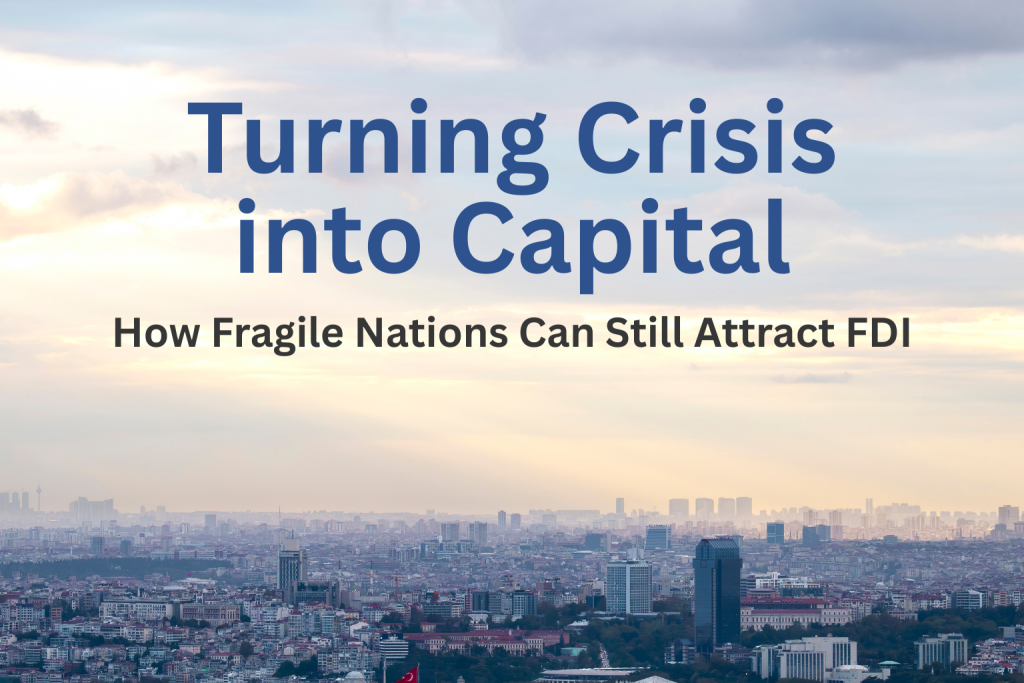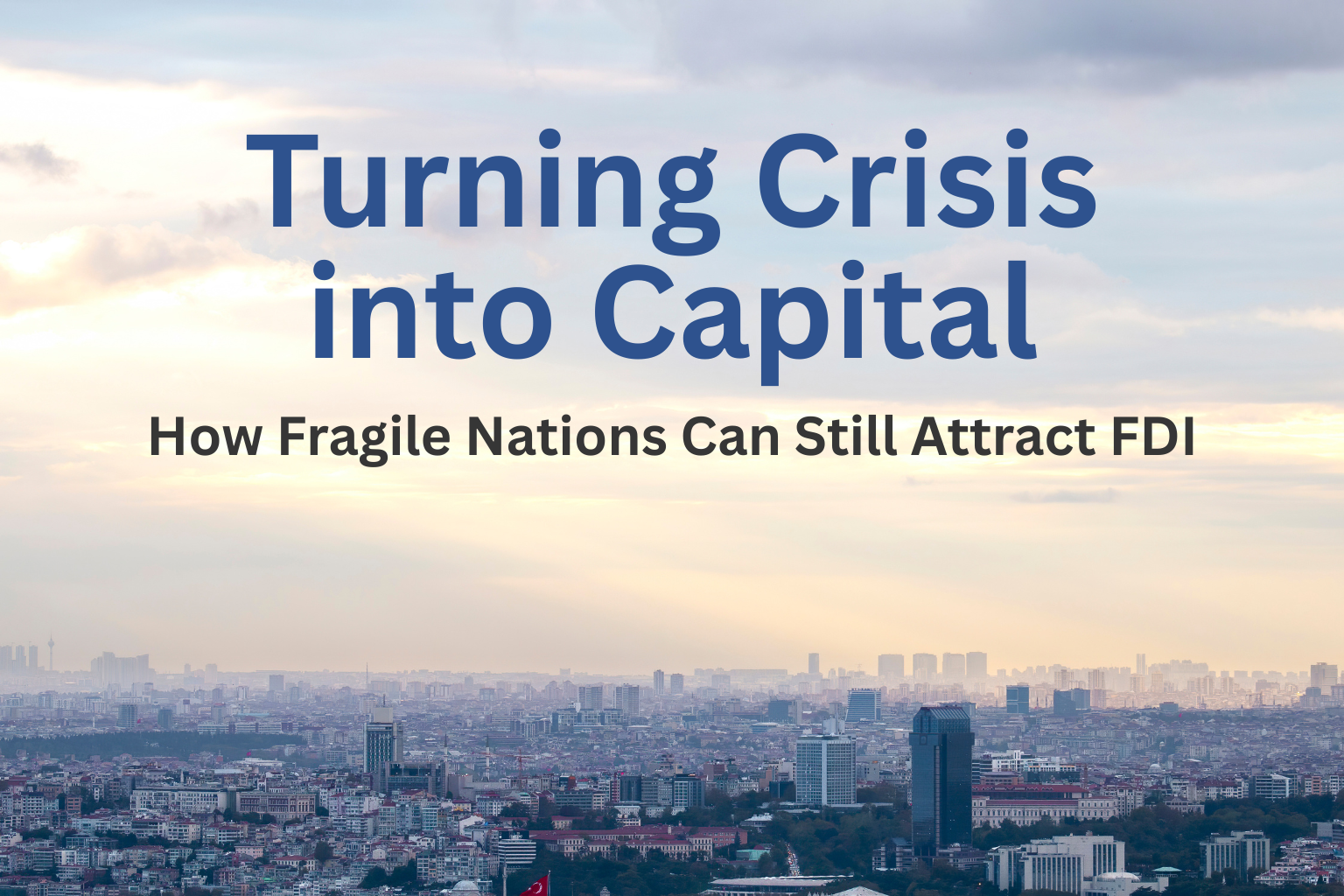By Dr. Muhammad Ali Shahzad
CEO, Ottoman Real Estate | Doctorate in Business Administration

In today’s climate of global uncertainty, attracting Foreign Direct Investment (FDI) is more than just securing capital; it’s about unlocking growth, creating jobs, and restoring international credibility. Yet, for countries plagued by political instability, economic crises, and weak institutions, the road to attracting FDI is filled with obstacles.
This article presents a structured strategy to help such nations shift from being high-risk markets to promising destinations for global investment.
1. Identifying the Core Challenges
Countries with systemic instability often face overlapping challenges that deter FDI:
- Political Instability: Frequent government changes, policy uncertainty
- Security Risks: Ongoing conflict or perception of regional volatility
- Poor Governance: Corruption, regulatory opacity, inefficient institutions
- Economic Volatility: Inflation, currency devaluation, debt distress
- Damaged Global Image: Media portrayal of crisis deters investor interest
2. Rethinking Strategy: Turning Crisis into Opportunity
While challenges are real, countries can still reposition themselves by:
a. Ensuring Basic Stability
Even partial progress in peace-building and macroeconomic reform boosts investor confidence. Examples: Colombia, Rwanda, Vietnam.
b. Launching Special Economic Zones (SEZs)
Create legally autonomous, investment-ready enclaves with modern infrastructure, clear legal systems, and professional governance.
c. Rebuilding International Partnerships
Work with institutions like the World Bank, IMF, and MIGA to offer risk guarantees and technical assistance.
3. Focus on High-Potential Sectors
Even fragile nations can attract FDI in sectors like:
- Natural Resources: With transparency in contracts
- Agriculture & Agro-Processing: Job-rich and scalable
- Digital Infrastructure: Fintech, mobile banking, e-services
- Logistics & Trade: Leverage strategic geography
4. Crafting a National FDI Roadmap
a. Start with Credibility, Not Complexity
Focus on achievable reforms: licensing portals, tax simplification, investment one-stop shops.
b. Build Trust Through Data & Transparency
Develop accessible FDI portals with legal documentation, sector data, and third-party audits.
c. Engage the Diaspora
Diaspora investors often trust first. Launch diaspora bonds, promote real estate investments, and offer streamlined facilitation.
5. Deep Institutional Reform
Sustainable FDI attraction depends on:
- Rule-of-law through judicial reform
- Anti-corruption enforcement
- Financial liberalization (FX convertibility, repatriation)
- Independent regulatory bodies
6. Case Studies: Learning from Resilience
- Rwanda: Anti-corruption, digital government, regional investment promotion
- Colombia: Post-conflict zones turned into tourism and energy hubs
- Bangladesh: Political challenges offset by low-cost manufacturing SEZs
Conclusion: FDI as a Catalyst for Change
FDI can transform fragile states when:
- Reforms are realistic and consistent
- Micro-environments like SEZs showcase progress
- Transparency, partnerships, and diaspora engagement are prioritized
Even in crisis, strategic vision and focused reform can attract the capital needed to stabilize and grow an economy.
References
- Atlantic Council (2023). Attracting Foreign Direct Investment.
- World Bank (2022). Doing Business Report.
- MIGA (2023). Annual Report on Risk Insurance.
- UNCTAD (2024). World Investment Report.




